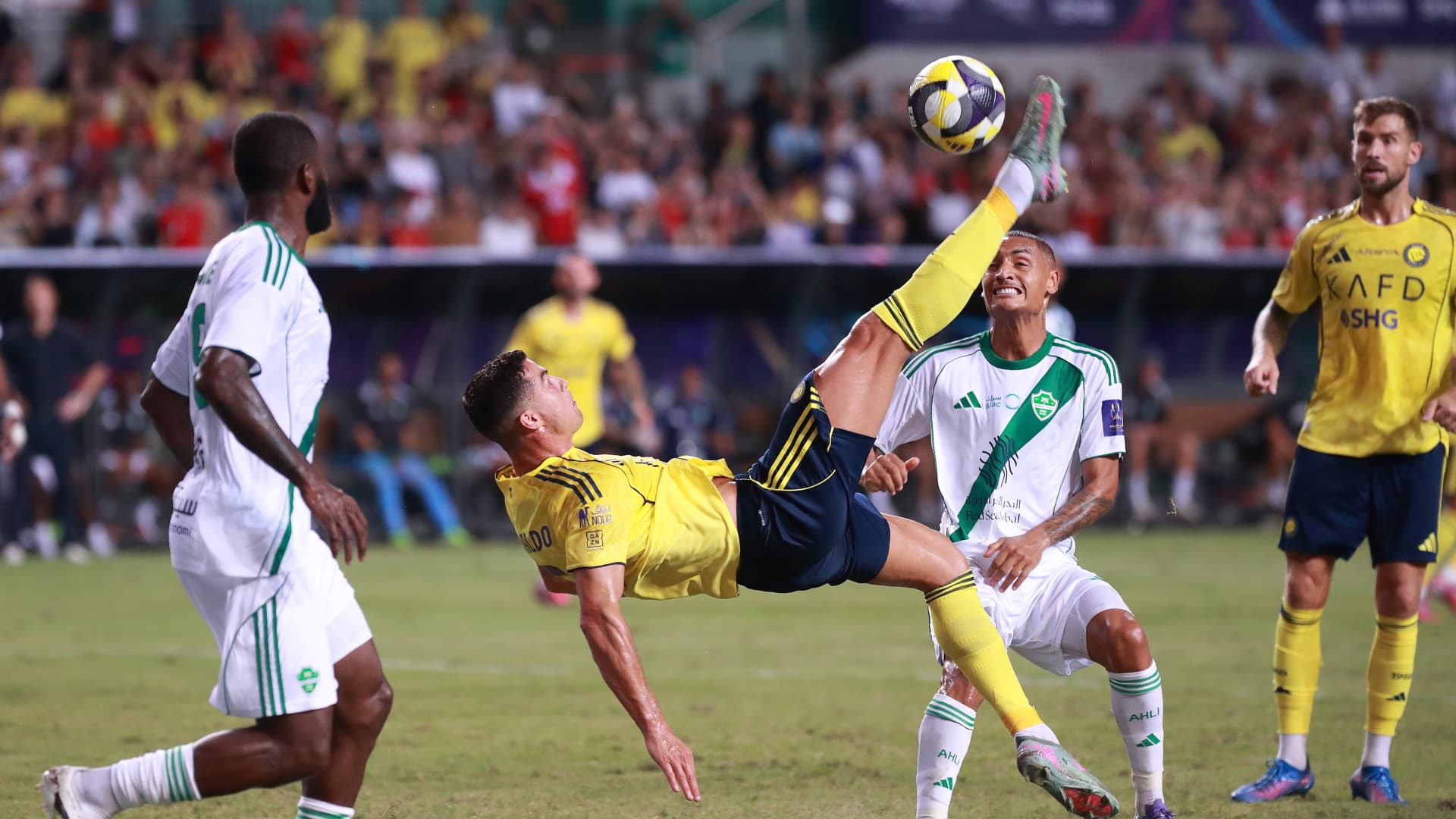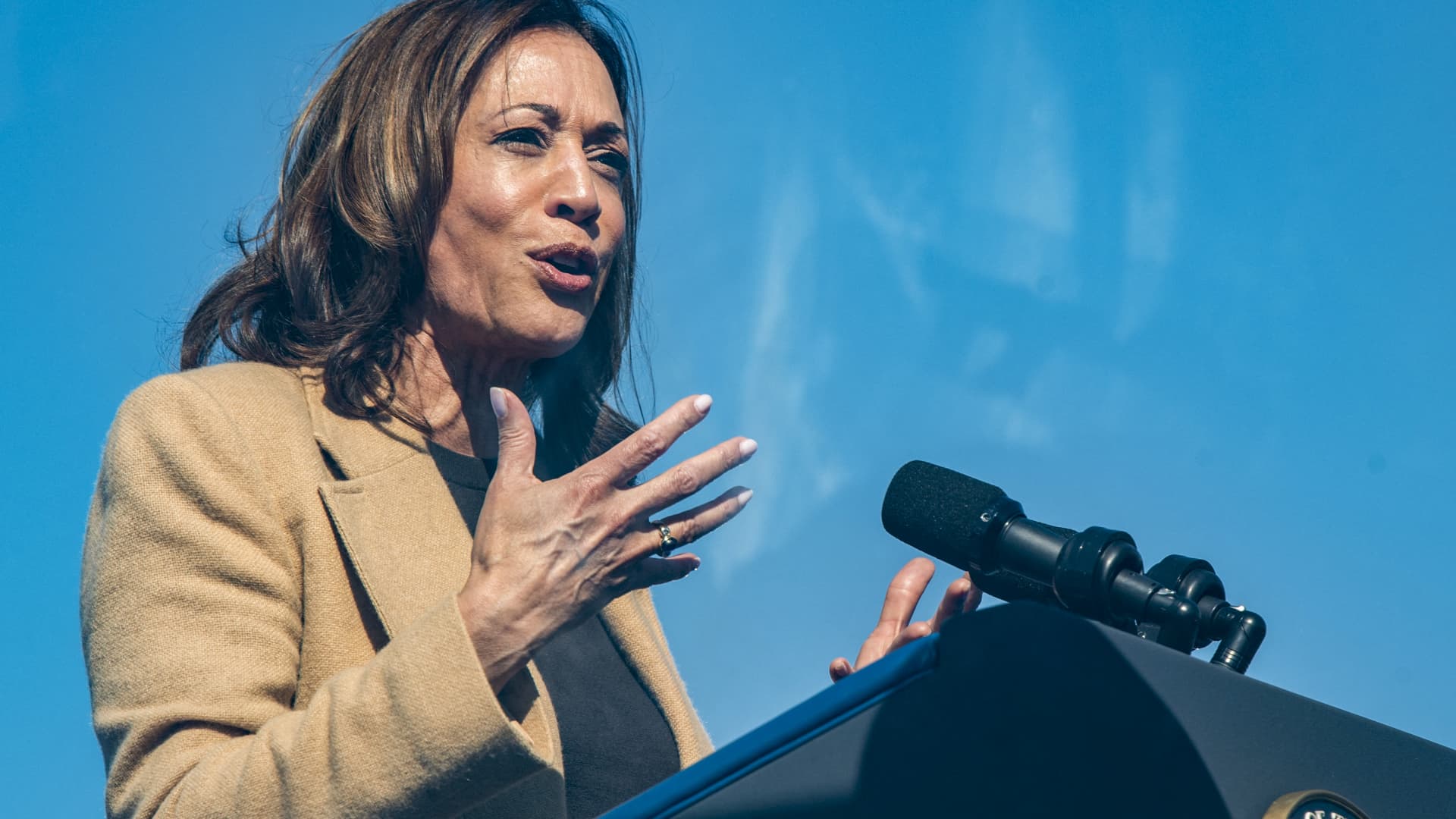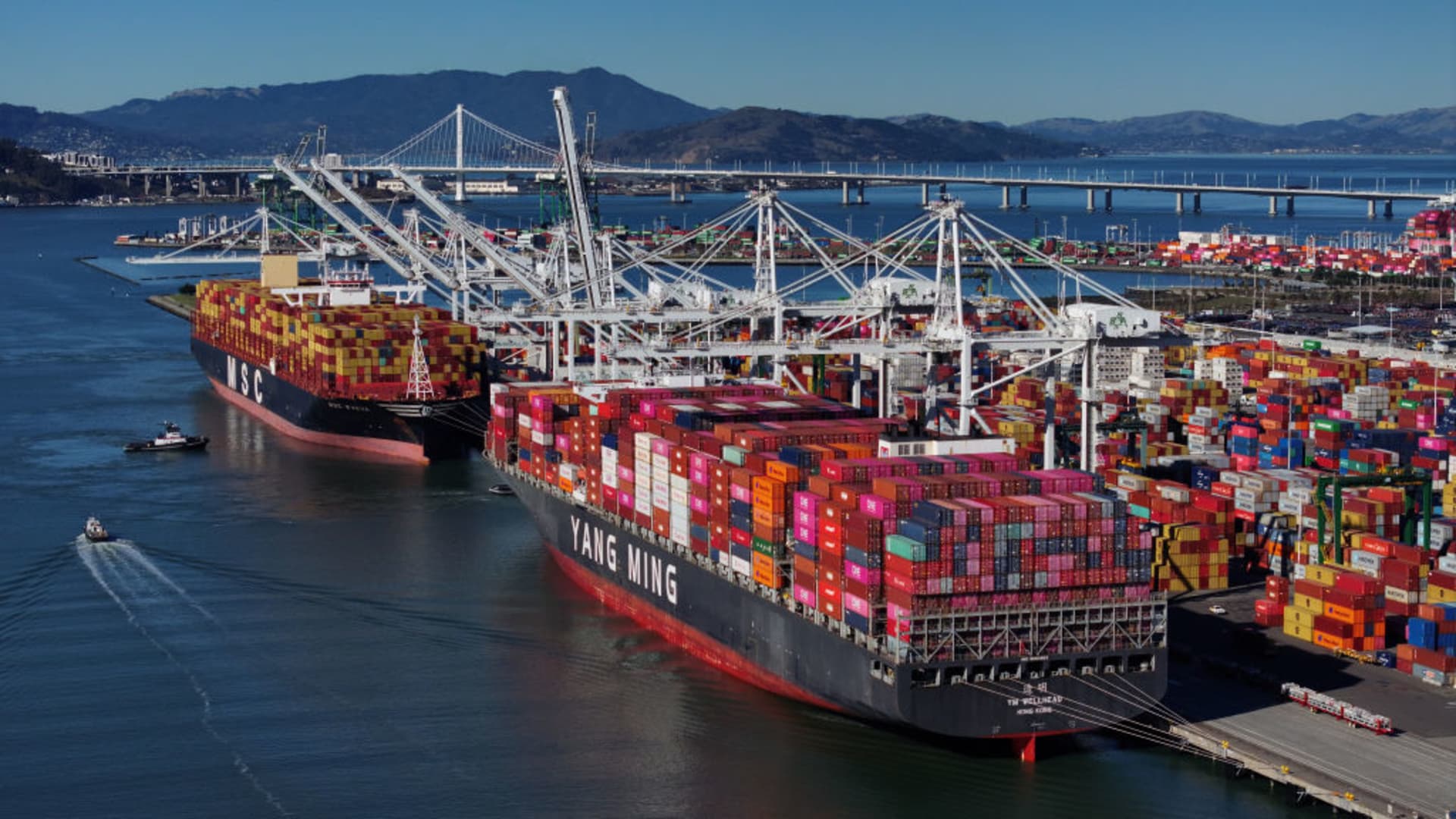Key Factors
- The Saudi Professional League is privatization to deliver it to better heights.
- Soccer is a core a part of Saudi Arabia’s Imaginative and prescient 2030, a sweeping plan to diversify its financial system away from oil revenues and reposition the dominion as a world cultural and industrial hub.
- The nation is trying to professionalize its home league so it could compete with the large leagues.
The Saudi Professional League’s 2023 spending spree put it on the worldwide soccer map . A bunch of stars comparable to Cristiano Ronaldo joined the league — enticed by mammoth switch charges to go away European soccer. It spent greater than $1 billion on transfers in 2023. Spending has since eased, though the determine to date this yr has already amounted to $486 million, with extra big-name signings. And now, with cash splashed and the highlight secured, the league is deploying a brand new technique for better ambitions: privatization. ‘Excessive-risk’ technique? Soccer is a core a part of Saudi Arabia’s Imaginative and prescient 2030, a sweeping plan to diversify its financial system away from oil revenues and reposition the dominion as a world cultural and industrial hub. The nation is already making main infrastructure investments for the 2034 FIFA World Cup, which it was chosen to host. Kieran Maguire, host of the Finance of Soccer podcast, instructed CNBC that Saudi Arabia selected soccer as a result of it’s the “world’s international sport,” and a part of a broader technique “when it comes to leisure and cultural alternatives.” With that purpose in thoughts and the league’s profile now firmly established, Saudi authorities are turning their consideration to privatization. By shifting from state-led spending to personal possession, the dominion is trying to professionalize its home league so it could compete with the large leagues. Over this summer season, the Public Funding Fund — the dominion’s sovereign wealth fund — and the Ministry of Sports activities have opened the door to privatization and out of doors capital . Three golf equipment have been offered to personal entities, with the primary overseas deal closed in July, when U.S.-based Harburg Group purchased Al-Kholood. Studies have additionally surfaced that the PIF and the Ministry of Sports activities need to promote their stake within the “huge 4” golf equipment of the league. Maguire mentioned he believes privatization is the subsequent step as a result of the PIF has already “finished the preliminary funding” of constructing infrastructure, spending, and forming a squad that can entice curiosity. However he additionally cautioned that it’s a “excessive threat technique,” noting the potential for pitfalls for buyers and the dominion alike as a result of it’s “tough for homeowners to make a revenue from operating a membership” and it’s “extremely unlikely Saudi golf equipment might be run profitably.” Causes for privatization Monetary sustainability and experience are huge causes for privatization. In emailed feedback, Kristian Coates Ulrichsen, a Center East fellow on the Baker Institute, famous a “slowing down of main new participant acquisitions and few enormous switch charges since 2023,” and if golf equipment need to buy a participant, “they must make room of their price range.” Noting current price range cuts “throughout the board” in Saudi Arabia, Paul Williams, co-host of The Asian Recreation podcast, instructed CNBC that the league is “limiting the quantity that golf equipment can spend.” He added that “spending $1 billion every year is clearly unsustainable” for a soccer ecosystem. In an interview with CNBC, Ben Harburg, the brand new proprietor of Al-Kholood, likewise mentioned that Saudi soccer golf equipment “cannot hold dumping cash into golf equipment which can be burning it yearly.” He cited monetary sustainability as one of many causes for privatization. Harburg, who additionally has a stake in a Spanish membership, mentioned the Saudi experiment resembles what’s been tried and examined in Europe, the place golf equipment can “earn cash by growing younger native expertise” earlier than “promoting them to greater golf equipment.” One other benefit of privatization is the experience that enterprise homeowners deliver. Ulrichsen mentioned overseas buyers “deliver credibility and international networks” to the desk, whereas additionally producing “vital overseas funding” for the dominion. He added that non-public possession might result in “funding in coaching amenities and enhance the professionalization of the league,” making it an “engaging vacation spot for high gamers.” Privatization has been touted as the subsequent step for the league’s international ambitions as a result of it follows the identical industrial and aggressive blueprints that outline Europe’s elite leagues. Williams mentioned privatization is a transfer that finally will get the “finest Saudi expertise to Europe,” which might elevate the status of its home league. It is a chance for gamers to develop and attain Saudi’s “huge ambitions of qualifying for the subsequent World Cup.” What’s subsequent after privatization? However the privatization of soccer alone will not assist Saudi Arabia obtain its Imaginative and prescient 2030 objectives. Maguire mentioned it should “have a high quality product” to transcend the sporting objectives of Imaginative and prescient 2030 and the 2034 World Cup. Constructing a correct soccer ecosystem advantages the broader Saudi intention of diversifying away from oil. Maguire likens it to a “Malicious program” — if the nation is ready to get buyers “into the soccer facet of issues,” it will have them investing in “the broader financial system.” For achievement past the pitch, Saudi Arabia should strike a stability between spectacle and sustainability. If its soccer playbook succeeds, it might turn into the catalyst for the shift away from oil.



